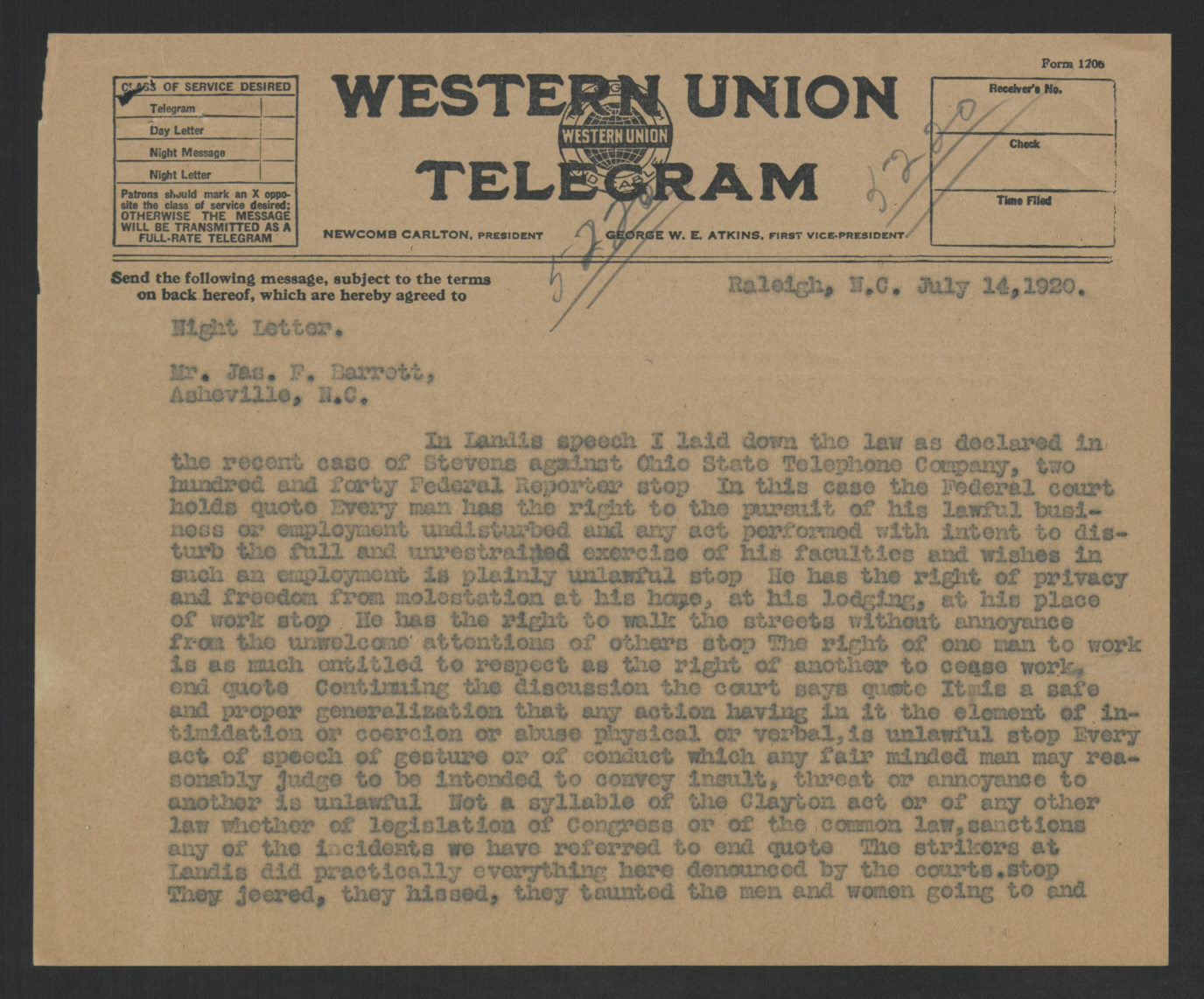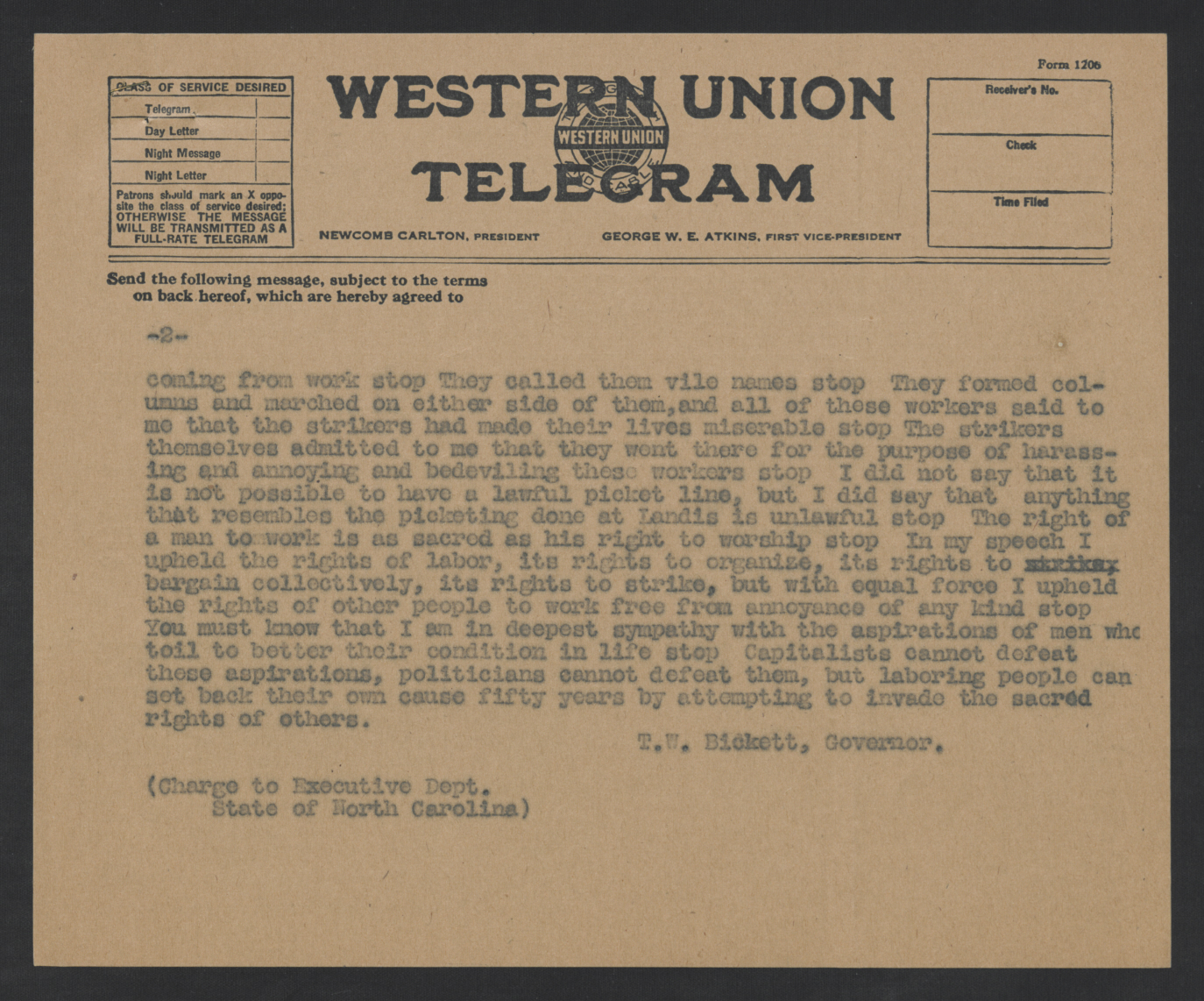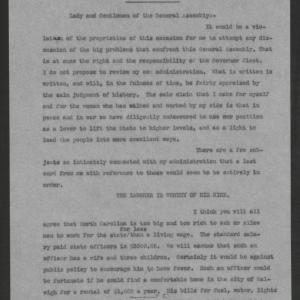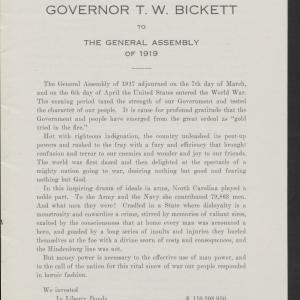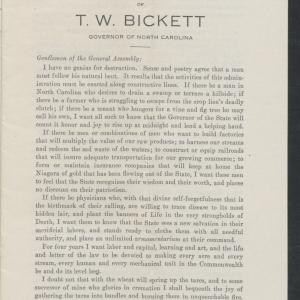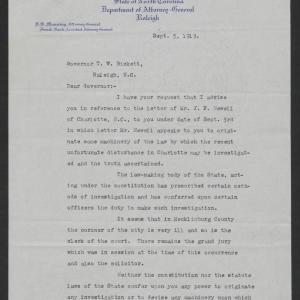Night Letter.
Raleigh, N.C. July 14, 1920.
Mr. Jas. F. Barrett,
Asheville, N.C.
In Landis speech I laid down the law as declared in the recent case of Stevens against Ohio State Telephone Company, two hundred and forty Federal Reporter. In this case the Federal court holds "Every man has the right to the pursuit of his lawful business or employment undisturbed and any act performed with intent to disturb the full and unrestrained exercise of his faculties and wishes in such an employment is plainly unlawful. He has the right of privacy and freedom from molestation at his home, at his lodging, at his place of work. He has the right to walk the streets without annoyance from the unwelcome attentions of others. The right of one man to work is as much entitled to respect as the right of another to cease work." Continuing the discussion the court says "It is a safe and proper generalization that any action having in it the element of intimidation or coercion or abuse physical or verbal, is unlawful. Every act of speech of gesture or of conduct which any fair minded man may reasonably judge to be intended to convey insult, threat or annoyance to another is unlawful. Not a syllable of the Clayton act or of any other law whether of legislation of Congress or of the common law, sanctions any of the incidents we have referred to." The strikers at Landis did practically everything here denounced by the courts. They jeered, they hissed, they taunted the men and women going to and coming from work. They called them vile names. They formed columns and marched on either side of them, and all of these workers said to me that the strikers has made their lives miserable. The strikers themselves admitted to me that they went there for the purpose of harassing and annoying and bedeviling these workers. I did not say that it is not possible to have a lawful picket line, but I did say that anything that resembles the picketing done at Landis is unlawful. The right of a man to work is as sacred as his right to worship. In my speech I upheld the rights of labor, its rights to organize, its rights to bargain collectively, its rights to strike, but with equal force I upheld the rights of other people to work free from annoyance of any kind. You must know that I am in deepest sympathy with the aspirations of men who toil to better their condition in life. Capitalists cannot defeat these aspirations, politicians cannot defeat them, but laboring people can set back their own cause fifty years by attempting to invade the sacred rights of others.
T. W. Bickett, Governor.
(Charge to Executive Dept. State of North Carolina.)

